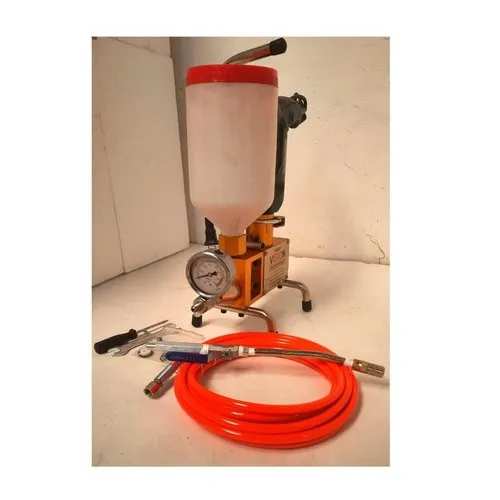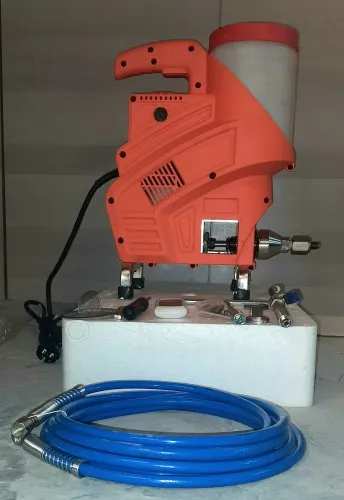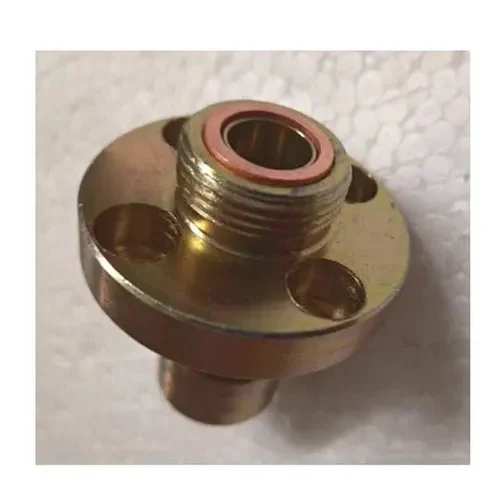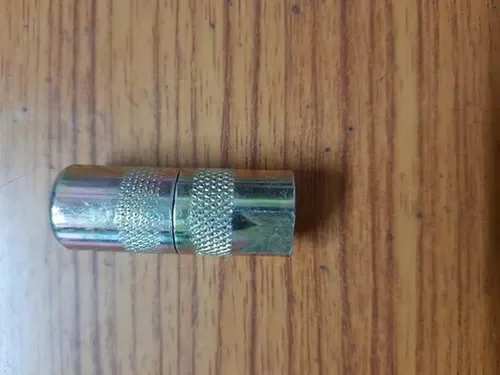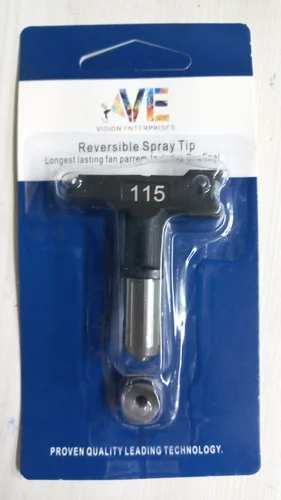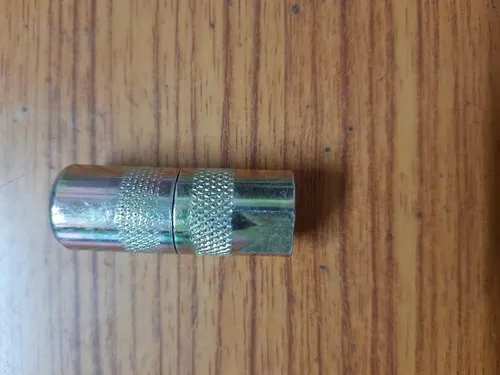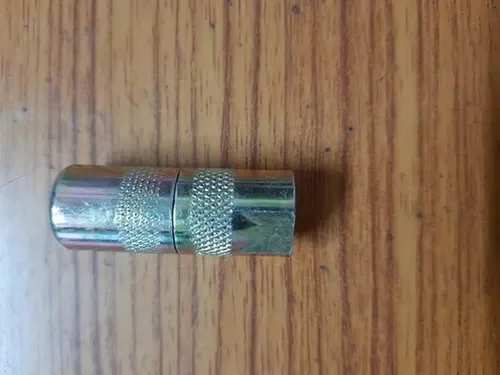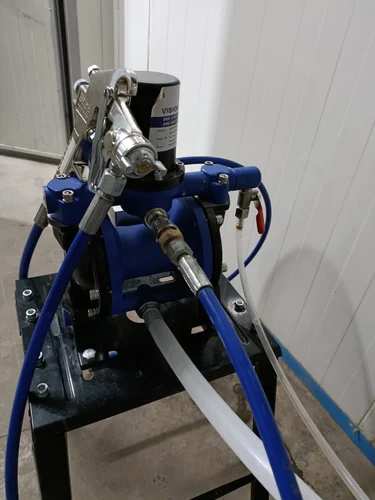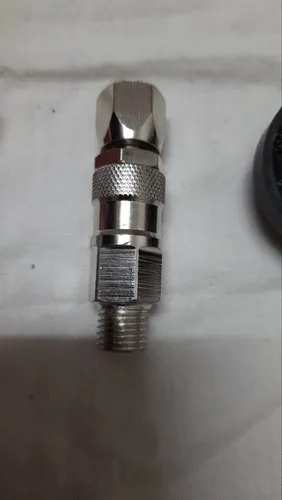Usage/Application: Grouting Discharge Pressure: 350 Bar Model Name/Number: IG 01 Brand: Vision Enterprises Motor Horsepower: 600 Watt Maximum Discharge Flow: 1 ltr/min Voltage: 560 V Frequency: 50 Hz Power Source: Electric Injection Pressure: 80 Mpa To retain our goodwill in client's consideration, we are trading an excellent quality range of Epoxy Grouting Pump. Features: Sturdy design Long working life Easy to operate Epoxy Grouting Pumps: Precision Control for Resinous Reinforcement Epoxy grouting pumps are specialized tools designed to inject epoxy-based grout, a high-strength resinous material, into cracks, voids, and joints in concrete and other structures. Compared to traditional cement grouts, epoxy offers superior adhesion, chemical resistance, and flexibility, making it ideal for demanding applications. Here's what sets epoxy grouting pumps apart: Built for Resinous Realities: Corrosion-resistant materials: Stainless steel, Teflon, and other non-reactive components prevent the pump from degrading by the harsh chemicals in epoxy grout. Precise metering: Specialized valves and controls ensure accurate measurement and delivery of the resinous mixture, crucial for controlled injection and optimal results. Leak-proof seals: Tightly sealed connections minimize the risk of leaks and spills, protecting both the operator and the work environment. Key Features: High pressure capabilities: Similar to piston grout pumps, epoxy grouting pumps can generate significant pressure (up to 15,000 psi) for effective delivery into tight spaces or against resistance. Controlled flow: Precise flow rate adjustment ensures even distribution of the epoxy throughout the targeted area, leading to superior bonding and crack filling. Easy cleaning: Smooth surfaces and readily accessible components simplify cleaning and maintenance, minimizing downtime and maximizing efficiency. Portable or stationary: Choose from lightweight, portable models for smaller jobs or heavy-duty, stationary setups for large-scale projects. Applications: Structural strengthening: Enhance the load-bearing capacity of concrete elements like beams, columns, and foundations. Waterproofing and leak repair: Seal cracks and joints in structures like dams, tunnels, and basements, preventing water ingress and corrosion. Equipment stabilization: Secure machinery bases and anchor bolts for improved stability and vibration control. Crack and void filling: Fill and reinforce cracks in concrete structures to restore structural integrity and prevent further damage.

